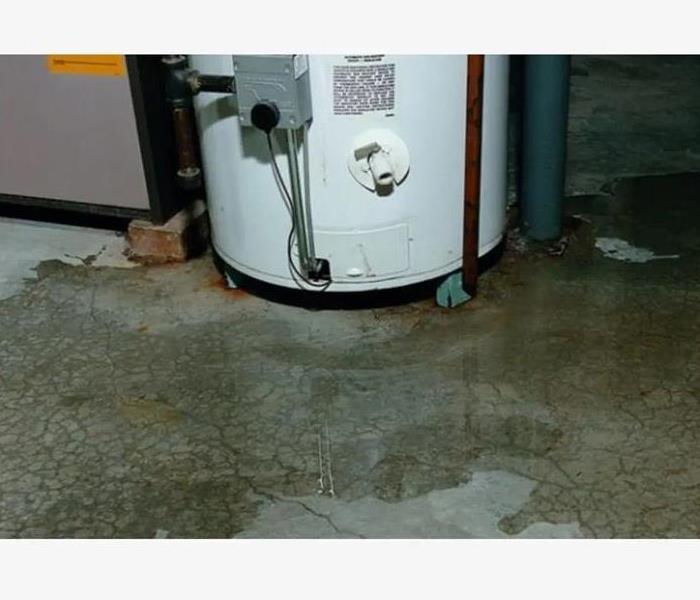The Appliances That Cause the Most Water Damage
10/15/2024 (Permalink)
While water damage can often come from obvious sources, such as weather or plumbing issues, appliances can create just as much damage in a much sneakier way.
Because their seals and pipes are typically isolated, homeowners may take years to discover leaks. That is why scheduling routine checks and knowing what to look for is so important for prevention.
The Appliances That Cause the Most Water Damage
Hot Water Heater
A well-maintained hot water heater can last up to 15 years, but leaks from the components and pipes may start much sooner. Checking the seals and pipes surrounding the heater is important, as well as monitoring the drain pan to ensure any accumulated water is being drained away sufficiently.
Refrigerator
Refrigerators are an appliance that does not get moved often, making them a typical culprit for hidden leaks. Ice makers and water dispensers pull water through the back of the refrigerator, and if there is a leak in their water tubing, it can cause damage behind and under the fridge if left unaddressed. Making it a regular habit to pull the fridge from the wall is wise.
Dishwasher
Refrigerators and dishwashers share many of the same sentiments, with dishwashers being even higher risk. Not only do they use more water to operate, but they also may not be covered by the average homeowners’ insurance plan. When you check the refrigerator, make a point of checking the dishwasher, too, just in case.
Washing Machine
Washing machines are so notorious for developing leaks that their hoses should be checked monthly for any drips or accumulation. They should also be replaced in five-year intervals to avoid any hidden damages from causing issues later on.
Air Conditioner
The drainage system on an air conditioning unit is designed to remove the moisture it creates as it runs, but any issues with this drainage system can easily turn into a water damage scenario. Keeping up with your manufacturer-recommended maintenance is one of the best prevention strategies—your unit will be inspected and any issues will be handled quickly. Additionally, do self-checks on your unit when it is running regularly to check for water buildup or damage.
If your home has been impacted by water damage or you’d like to put a plan in place in case it happens to you, contact us to learn how we can help.
Call us at SERVPRO of South Shasta County today, (530) 241-2424.






 24/7 Emergency Service
24/7 Emergency Service
